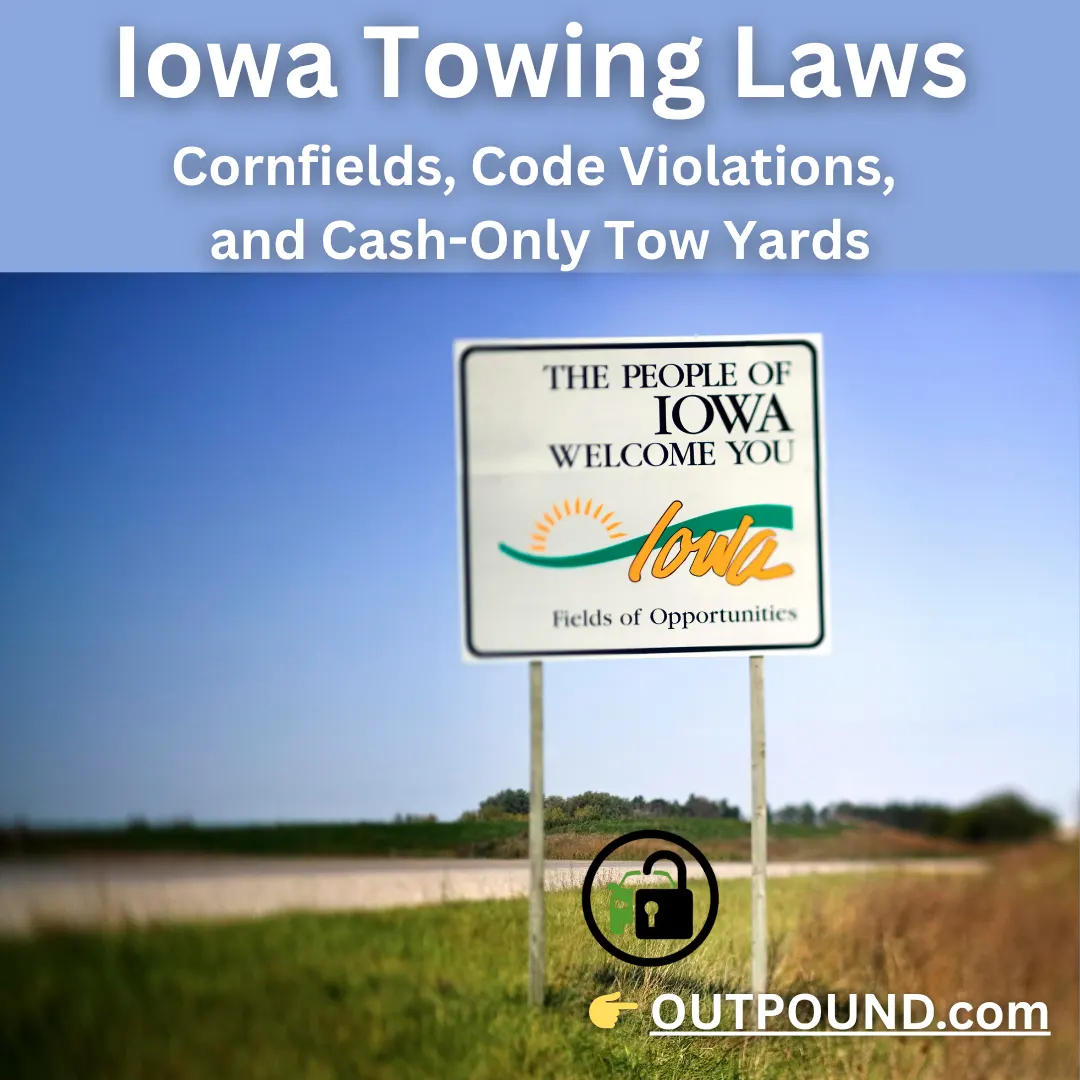Cornfields, Code Violations, and Cash-Only Tow Yards

Welcome to Iowa, where the fields stretch for miles, the corn is tall, and tow trucks prowl the highways and small towns like hawks. You might think life in the Hawkeye State is peaceful, but if your car gets towed in Des Moines, Cedar Rapids, or any other Iowa town, you quickly learn that “peaceful” does not apply to your wallet. Iowa’s towing industry thrives on obscure rules, surprise fees, and the ability to make a minor parking error feel like a federal offense.
Who Can Tow?
In Iowa, tow operators must be licensed by the state. Private property owners and law enforcement can authorize a tow, which means a misplaced car in a small town strip mall or apartment complex can disappear faster than you can finish a coffee. Even if the signs are posted, many lots make sure they’re as small or hidden as possible, because why make it easy for drivers to avoid paying hundreds in hook- up and storage fees?
When Can They Tow?
Iowa law allows towing for vehicles parked illegally, blocking a driveway, in a fire lane, or left on private property without permission. The term “abandoned vehicle” is vague and leaves tow yards room to interpret it liberally. A car left for a couple of days at a rural park or empty lot could be labeled abandoned, giving tow companies legal cover to charge maximum fees. Many apartment complexes and businesses actively monitor lots to snatch vehicles that look “out of place,” turning the simplest visit into a tow trap.
Notification Requirements
Towers must notify law enforcement promptly after towing a vehicle and attempt to contact the registered owner. In practice, however, the notifications often arrive late or get lost in the mail. Many Iowans find their vehicles missing before any paperwork shows up. By the time you locate the tow yard, storage fees are already racking up by the day, giving you that familiar sinking feeling that Iowa’s tranquility comes with a price.
Fees and Storage
Hook-up fees in Iowa typically range from $100–$150, with daily storage fees of $20–$40. Tow companies often charge extra for mileage, after-hours releases, or administrative handling. Miss one small step, like arriving after business hours or forgetting a specific document, and your total can quickly jump into the $300–$400 range. Unlike other states with strict fee caps, Iowa leaves a lot of flexibility in the hands of tow operators, and they’re not shy about using it.
Vehicle Recovery
To retrieve your vehicle, bring your ID, proof of ownership, and payment in cash or card depending on the yard. Some tow lots operate cash-only, others add “convenience” fees for card payments. You can request an itemized receipt, but many yards make you beg for it. If there’s a misstep, your car racks up more daily storage fees, making a simple tow an expensive endurance test. Legal Recourse
Iowa law allows drivers to contest an illegal tow or challenge excessive fees in small claims court. However, these cases can take weeks to resolve, by which time your vehicle may have been auctioned as “abandoned.” Filing a dispute requires detailed documentation! Obtain photos, notices, and receipts...but most people pay first and argue later, if at all.
The Escape The Impound Ending = OUTPOUND
Iowa may be quiet and scenic, but its towing industry is aggressive, profitable, and often confusing. Don’t wait for luck or law enforcement to rescue your vehicle. Go straight to OUTPOUND.com to locate your car, confirm its tow status, and plan your retrieval efficiently. In Iowa, the cornfields may be calm, but tow yards are not, and OUTPOUND is the lifeline that keeps your wallet intact.

